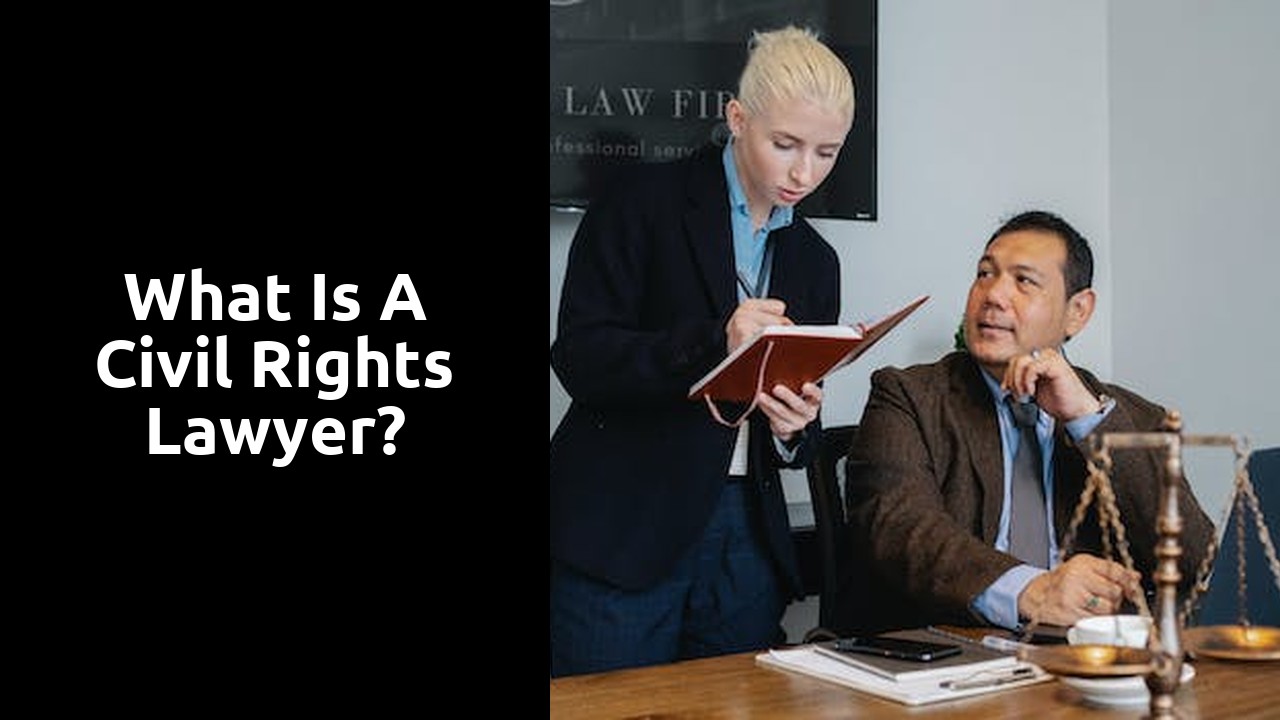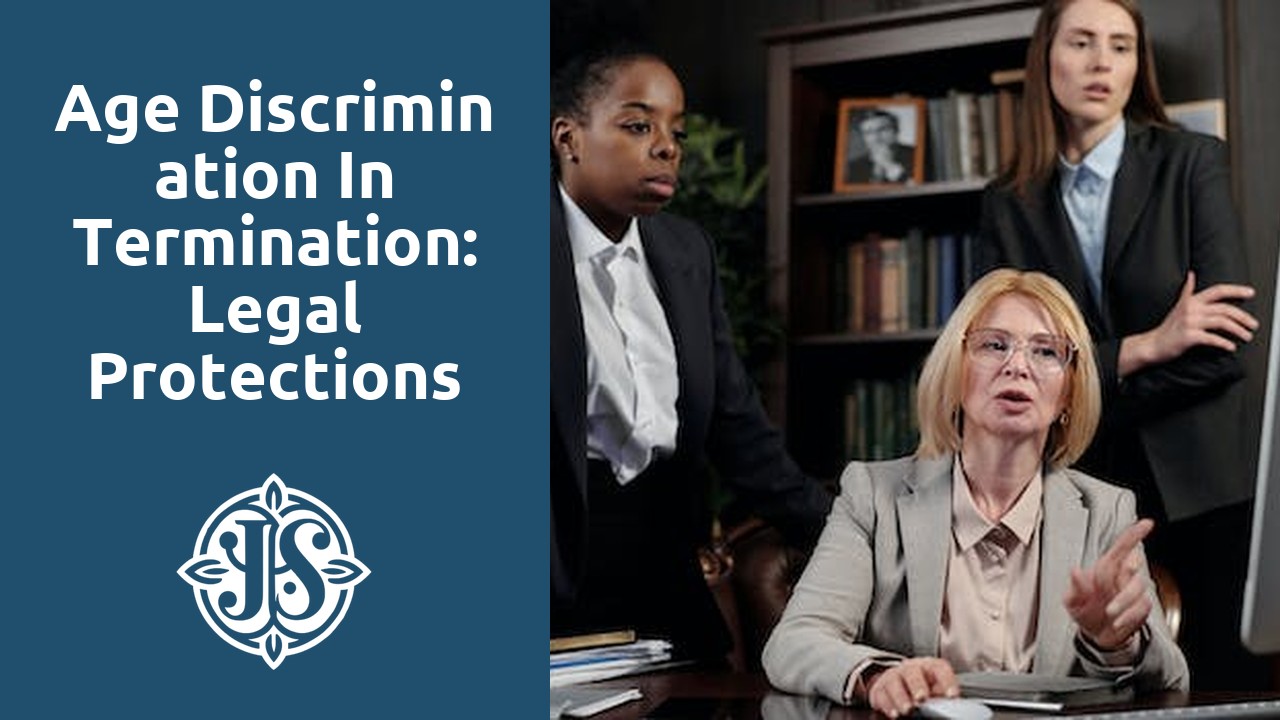Contents
- 1 The Role of Legal Advocates in Protecting Civil Liberties
- 2 Exploring the Responsibilities of Attorneys in Defending Civil Rights
- 3 Understanding the Importance of Legal Representation in Civil Rights Cases
- 4 Key Characteristics of Lawyers Specializing in Civil Rights
- 5 The Evolution of Civil Rights Law and Its Impact on Society
- 6 Navigating the Complexities of Civil Rights Litigation
- 7 FAQS
- 7.1 What is a civil rights lawyer?
- 7.2 What is the role of a civil rights lawyer?
- 7.3 What responsibilities do civil rights lawyers have?
- 7.4 Why is legal representation in civil rights cases important?
- 7.5 What are the key characteristics of a civil rights lawyer?
- 7.6 How has civil rights law evolved and impacted society?
- 7.7 What complexities are involved in civil rights litigation?
The Role of Legal Advocates in Protecting Civil Liberties
Legal advocates play a crucial role in safeguarding civil liberties and ensuring that individuals’ rights and freedoms are protected. These dedicated professionals work tirelessly to advocate for equal treatment and justice under the law. They specialize in various areas of civil rights law, including discrimination, wrongful termination, police misconduct, and more.
When individuals face discrimination or a violation of their civil rights, legal advocates step in to provide guidance and support. They not only offer legal representation to those who have been wronged but also work to raise awareness about civil rights issues and fight for systemic change. Through their skills, knowledge, and passion, legal advocates help individuals navigate the complex legal landscape, ensuring that their rights are protected and that justice is served. They are advocates for equality, justice, and fairness in society, working diligently to make a positive impact on the lives of those they represent.
Exploring the Responsibilities of Attorneys in Defending Civil Rights
Civil rights attorneys play a crucial role in defending and upholding civil rights. Their primary responsibility is to advocate for individuals who have been subjected to discrimination or unfair treatment based on race, gender, religion, nationality, or other protected characteristics. These attorneys are dedicated to ensuring that all individuals have equal access to opportunities and are protected from any form of discrimination.
One of the key responsibilities of civil rights attorneys is to provide legal representation to their clients in various settings. They may file lawsuits on behalf of individuals or groups who have faced discrimination, and they also offer legal advice and guidance to clients who are navigating complex civil rights issues. Additionally, civil rights attorneys work to educate individuals about their rights and help them understand the legal processes involved in seeking justice. By taking on these responsibilities, civil rights attorneys play a critical role in promoting equality and fighting against discrimination.
Understanding the Importance of Legal Representation in Civil Rights Cases
Legal representation plays a crucial role in civil rights cases, serving as a fundamental pillar of justice. When individuals or groups face discrimination, oppression, or violation of their rights, having competent legal advocates can make all the difference. These lawyers possess the knowledge, skills, and expertise to navigate the complexities of civil rights law and effectively fight for their clients’ rights.
One significant reason legal representation is important in civil rights cases is that it provides a voice for those who may otherwise go unheard. Many people who experience civil rights violations lack the resources, knowledge, or power to advocate for themselves. Lawyers specializing in civil rights act as powerful advocates, ensuring that these individuals receive proper legal representation and have their voices heard in the justice system. By utilizing their legal expertise and understanding of civil rights laws, these attorneys help level the playing field and increase the chances of a successful outcome for their clients.
Key Characteristics of Lawyers Specializing in Civil Rights
Lawyers specializing in civil rights possess certain key characteristics that make them effective advocates for marginalized individuals and groups. Firstly, a deep understanding of constitutional law and civil rights legislation is crucial for these lawyers. They must have a thorough knowledge of the legal frameworks that protect individuals from discrimination and violations of their civil liberties. This expertise allows them to navigate complex legal processes and make compelling arguments on behalf of their clients.
Secondly, a strong commitment to social justice is a defining characteristic of lawyers specializing in civil rights. They are passionate about challenging systemic injustice and fighting for the rights of those who have been marginalized or oppressed. This dedication drives them to work tirelessly for their clients, often taking on pro bono cases and actively engaging in advocacy efforts to bring about broader social change. Their unwavering determination and empathy make them highly effective in representing the interests of those who have been unjustly treated.
The Evolution of Civil Rights Law and Its Impact on Society
The evolution of civil rights law has had a profound impact on society. Over the years, legislation and court decisions have played a crucial role in advancing and protecting the rights of individuals from different backgrounds and marginalized groups. These laws have aimed to address historical inequalities and discrimination, paving the way for a more inclusive and equal society.
One of the significant milestones in the evolution of civil rights law was the Civil Rights Act of 1964 in the United States. This act outlawed racial segregation and discrimination in public places, employment, and education. It was a landmark legislation that marked a turning point in the fight for equality. Since then, numerous other laws and court rulings have expanded and clarified the scope of civil rights protections, covering areas such as voting rights, housing, gender equality, disability rights, and LGBTQ+ rights. These changes have reshaped societal norms and have brought about greater social justice and equality.
Navigating the complexities of civil rights litigation can be a challenging and demanding task. Attorneys who specialize in this field are tasked with the responsibility of representing individuals or groups whose civil rights have been violated. They work diligently to navigate the legal system, ensuring that their clients receive fair treatment and justice. From conducting thorough research and investigation, to crafting persuasive legal arguments, civil rights lawyers are well-versed in the intricacies of civil rights law and are equipped to navigate the complexities of litigation in pursuit of the protection and restoration of their clients’ rights.
Civil rights litigation often involves cases with significant societal implications, as the outcomes can have a profound impact on not only the individuals involved but also on society as a whole. This adds an additional layer of complexity to the already intricate legal process. Lawyers specializing in civil rights must not only have a deep understanding of the law, but also possess the ability to strategically maneuver through the legal system, advocating tirelessly for their clients. By expertly utilizing their legal knowledge and skills, civil rights attorneys play a crucial role in safeguarding the principles of equality and justice, ultimately shaping the evolution of civil rights law and its impact on society.
FAQS
What is a civil rights lawyer?
A civil rights lawyer is an attorney who specializes in protecting and defending the rights and liberties of individuals in society.
What is the role of a civil rights lawyer?
The role of a civil rights lawyer is to advocate for individuals and ensure their rights are protected in various areas, such as discrimination, police misconduct, freedom of speech, and more.
What responsibilities do civil rights lawyers have?
Civil rights lawyers have the responsibility to provide legal representation and counsel to individuals who have experienced civil rights violations, file lawsuits on their behalf, gather evidence, negotiate settlements, and defend their clients’ rights in court.
Why is legal representation in civil rights cases important?
Legal representation in civil rights cases is crucial because it ensures that individuals have knowledgeable advocates who can navigate the complexities of the legal system, protect their rights, and fight against any injustices they have experienced.
What are the key characteristics of a civil rights lawyer?
Key characteristics of a civil rights lawyer include a deep understanding of civil rights laws, strong advocacy skills, empathy for their clients, analytical thinking, excellent communication skills, and a commitment to justice and equality.
How has civil rights law evolved and impacted society?
Civil rights law has evolved over time, expanding protections and liberties for marginalized groups. It has played a significant role in dismantling discriminatory practices, promoting equality, and shaping a more inclusive society.
What complexities are involved in civil rights litigation?
Civil rights litigation can be complex due to various factors, such as navigating intricate legal procedures, gathering sufficient evidence to prove violations, facing resistance from opposing parties, and dealing with potential backlash or public scrutiny. A civil rights lawyer helps individuals navigate these complexities effectively.




